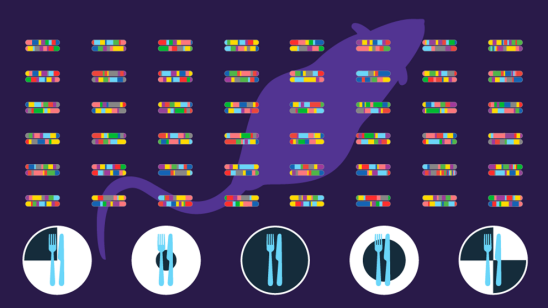研究:吃得少体重不掉?可能预示着长寿

For nearly a century, laboratory studies have shown that if animals eat less food or eat less often, they tend to live longer. However, scientists haven’t fully understood why these restricted diets help extend lifespan or how to best apply them to humans. Now, in a much-awaited study, researchers from The Jackson Laboratory (JAX) and their partners followed nearly a thousand mice on different diets to learn more about these questions.
Gary Churchill is the professor at JAX who led the study. Churchill and his team gave female mice five different diets: one in which the animals could eat as much as they wanted anytime, two in which the animals got only 60% or 80% of their usual amount of food each day, and two in which the animals didn’t get any food for one or two days a week but could eat as much as they wanted on the other days. Then, they watched the mice for the rest of their lives, checking their blood and overall health regularly.
On average, mice that could eat as much as they wanted lived for about 25 months. Mice on the intermittent fasting (间歇性禁食) diet lived for around 28 months, those eating 80% of their usual amount lived for about 30 months, and those eating only 60% lived for 34 months. However, within each group, there was a big difference in how long the mice lived; for example, some mice eating the least food lived just a few months, while others lived up to four and a half years.
The study found that eating fewer calories made mice live longer than fasting every other day. Surprisingly, the mice that lived the longest on the restrictive diets were those that lost the least weight despite eating less. Animals that lost the most weight on these diets tended to have low energy, weaker immune systems, weaker reproductive systems, and didn’t live as long.
原创编写 版权所有 侵权必究! 每日更新 个性化阅读 英语飙升!